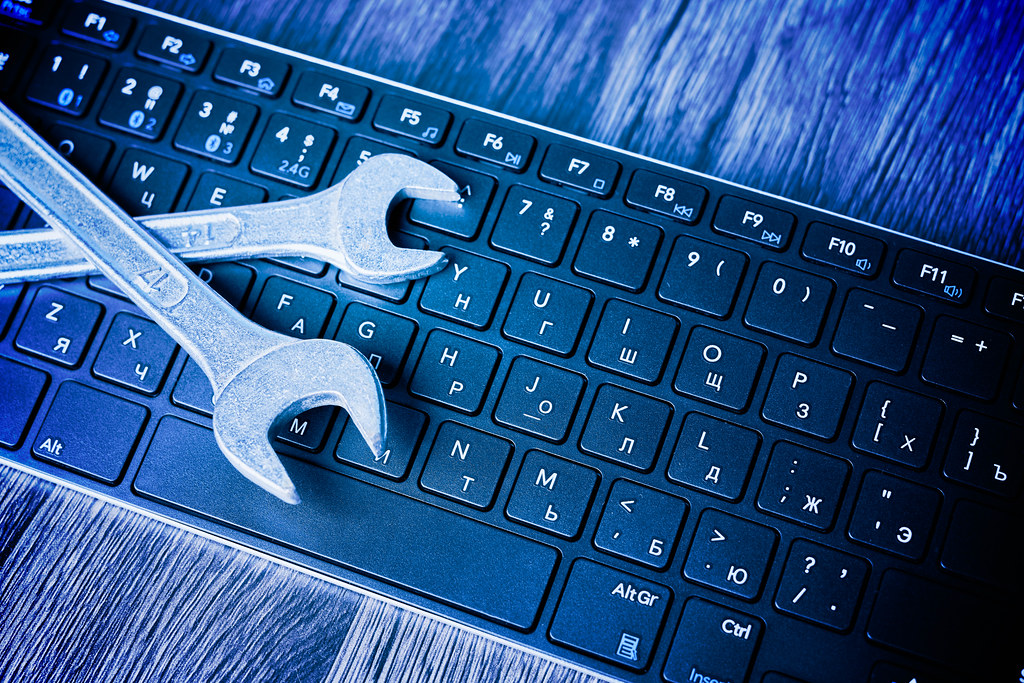
In a world where technology is intertwined with almost every aspect of our daily lives, maintaining the health of our personal computers (PCs) is not just a matter of convenience, but a necessity. Regular maintenance and timely repairs can extend the lifespan of your PC, improve its performance, and save you from costly professional services. This comprehensive guide aims to equip you with essential knowledge and practical tips for keeping your computer running smoothly.
Understanding the Importance of PC Health
Just like any other machine, a PC requires regular check-ups and maintenance to function optimally. Ignoring minor issues can lead to more significant problems, resulting in decreased performance, data loss, or even hardware failure. By adopting a proactive approach to PC maintenance & pc tech service, you can prevent many common issues and ensure your computer remains reliable and efficient.
Setting the Foundation: Regular Maintenance Tasks
Keep Your PC Clean
Dust accumulation inside your computer can lead to overheating, which is one of the leading causes of PC malfunctions. Use compressed air to gently clean the interior of your PC, focusing on fans, heat sinks, and other components prone to dust buildup. Ensure your workspace is clean and free of potential contaminants.
Update Regularly
Software updates are not just about new features; they often contain critical security patches and performance improvements. Regularly updating your operating system, drivers, and applications can protect your PC from vulnerabilities and enhance its efficiency.
Monitor Your System’s Health
Utilize built-in or third-party tools to monitor your PC’s health, including its temperature, disk space, and memory usage. Tools like Windows Task Manager or Resource Monitor can help identify processes that are consuming too many resources.
Tackling Common Problems
Slow Performance
Over time, PCs can become sluggish due to cluttered hard drives, fragmented data, and background processes. Here’s how to address these issues:
- Clean Up Your Hard Drive: Use built-in tools like Disk Cleanup to remove temporary files and free up space.
- Defragment Your Hard Drive: If you’re using an HDD, regularly defragmenting it can improve speed. SSDs do not require defragmentation.
- Manage Startup Programs: Disable unnecessary programs that run on startup to speed up boot times.
Viruses and Malware
Malware can compromise your PC’s performance and security. Protect your computer by:
- Installing Antivirus Software: Choose a reputable antivirus program and keep it updated.
- Running Regular Scans: Perform regular full-system scans to detect and remove malicious software.
- Practicing Safe Browsing: Be cautious about the websites you visit and the files you download.
Hardware Issues
Some hardware problems, such as failing hard drives or outdated components, can also affect your PC’s performance.
- Back Up Your Data: Regularly backing up your data can prevent loss in case of hardware failure.
- Consider Upgrades: Replacing your HDD with an SSD or adding more RAM can significantly improve your PC’s speed and responsiveness.
Advanced Maintenance and Repairs
Cleaning the Interior
At least once a year, open your PC case to perform a thorough cleaning. Remove dust from components and check for signs of wear or damage. Ensure all cables are securely connected and inspect the motherboard for bulging capacitors, which can indicate impending failure.
Reapplying Thermal Paste
Over time, the thermal paste between your CPU and its cooler can degrade, leading to overheating. Carefully remove the cooler, clean off the old thermal paste from the CPU and cooler, and apply a new, thin layer before reattaching the cooler.
Upgrading Components
As software requirements evolve, your PC’s hardware might struggle to keep up. Upgrading components like the RAM, GPU, or switching to an SSD can breathe new life into an older machine. Ensure compatibility with your motherboard before purchasing new components.
When to Seek Professional Help
While many maintenance tasks and minor repairs can be handled at home, some issues require professional expertise, especially when dealing with complex hardware problems or severe malware infections. If you’re not confident in your ability to fix a problem, or if DIY solutions have failed, it’s best to consult with a professional technician to avoid causing further damage.
Conclusion
Regular maintenance is the key to ensuring your PC remains in top working condition, providing a seamless computing experience. By adopting a proactive approach to PC care, you can prevent common problems, extend your computer’s lifespan, and maximize its performance.
Remember, a little effort goes a long way in keeping your computer healthy, but don’t hesitate to seek professional assistance for complex issues beyond your expertise. With this guide, you’re well-equipped to take charge of your home PC’s maintenance and repair, ensuring it serves you well for years to come.